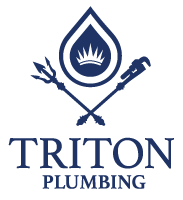9 Best Practices for Winterizing Your Home Plumbing
/Winter in Metro Detroit can be harsh, with freezing temperatures that pose a threat to your home's plumbing system. To prevent frozen pipes, burst pipes, and costly damage, it's essential to winterize your plumbing. In this blog, Triton Plumbing will guide you through the steps to winterize your home plumbing and protect your property during the chilly months.
Insulate Exposed Pipes
One of the most effective ways to prevent frozen pipes is to insulate any exposed pipes, especially those in unheated areas such as basements, crawlspaces, or attics. Use pipe insulation sleeves or foam wraps to provide an additional layer of protection. Pay particular attention to pipes near exterior walls and windows, as they are more susceptible to freezing.
Drain & Disconnect Outdoor Faucets
Before the freezing temperatures arrive, it's crucial to disconnect and drain outdoor faucets and hoses. Shut off the water supply to these faucets from the inside and allow any residual water to drain out. This step helps prevent ice from forming in the faucets and pipes, which can lead to cracks and leaks.
Seal Gaps & Cracks
Inspect your home for any gaps or cracks that could allow cold air to penetrate and freeze your pipes. Caulk and seal any openings around windows, doors, and foundation walls. This not only helps with winterization but also improves your home's overall energy efficiency.
Service Your Water Heater
Your water heater works harder during the winter months. To ensure it's operating efficiently and reliably, consider scheduling a professional inspection and maintenance service. This will help prevent unexpected breakdowns and ensure you have a consistent supply of hot water.
Keep Your Home Warm
Maintaining a consistent indoor temperature is crucial in preventing frozen pipes. Keep your thermostat set to a comfortable temperature, even when you're away from home. If you plan to be away for an extended period, don't turn the heat off completely. Instead, lower the temperature but keep it above freezing.
Let Faucets Drip
On extremely cold nights, allow faucets to drip slightly. This continuous flow of water can help prevent pipes from freezing by relieving pressure and maintaining a slightly warmer temperature within the pipes.
Install Freeze Alarms
Consider installing freeze alarms or temperature monitoring systems in your home. These devices can alert you via phone or email if the temperature in your home drops to a level that could potentially freeze your pipes. Early notification can help you take action before any damage occurs.
Know Your Shut-Off Valves
Familiarize yourself with the location of your main water shut-off valve and any individual shut-off valves for appliances and fixtures. In case of a sudden freeze or plumbing emergency, knowing how to quickly turn off the water supply can prevent significant damage.
Professional Inspection
Consider scheduling a professional plumbing inspection before winter sets in. A licensed plumber can identify any potential issues and recommend necessary repairs or upgrades to your plumbing system.
Winterizing your home plumbing is a vital step in protecting your property from the harsh winters in Metro Detroit. By following these tips from Triton Plumbing, you can minimize the risk of frozen pipes, burst pipes, and water damage during the colder months. If you need assistance with plumbing maintenance, inspections, or repairs, don't hesitate to contact Triton Plumbing, your trusted partner in Metro Detroit plumbing services.


